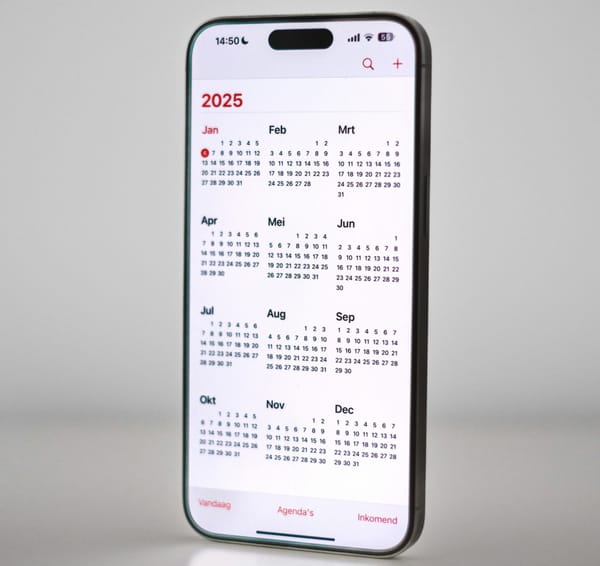Bangladesh Scams 2025: The bKash Crisis – When Mobile Banking Revolution Meets Fraud Epidemic

DHAKA — Bangladesh's mobile financial services revolution—with 87% of users on bKash, tens of millions using Nagad, and the nation leading South Asia in financial inclusion through mobile money—faces an existential crisis as one in every 10 MFS users (9.3%) falls victim to fraud. The average loss of Tk 9,000 per victim may seem modest, but in a nation where millions live on Tk 10,000-15,000 monthly, these frauds are devastating. Yet the crisis runs far deeper: Nagad Limited misappropriated Tk 1,711 crore (USD $143 million) through illegal e-money issuance, forcing Bangladesh Bank to appoint an administrator in August 2024.
The SikkahBot malware campaign targeting students, AI-powered bots predicting transactions, and sophisticated PIN compromise scams have eroded trust in the digital payment systems that brought banking to Bangladesh's unbanked millions. With 30% of fraud victims never getting complaints resolved and 45% of the population refusing to use MFS due to fraud fears, Bangladesh's digital economy dreams hang in the balance.
As Bangladesh Bank introduces sweeping new regulations ("Regulation for E-Money Issuers in Bangladesh-2025") requiring Tk 100 crore paid-up capital, trust entities, and enhanced governance, the question looms: Can Bangladesh save its mobile banking revolution before fraud destroys what took decades to build?
Date: November 16, 2025
Executive Summary
Bangladesh stands at a critical crossroads: its remarkable mobile financial services success—bringing banking to millions of unbanked citizens—now threatened by a fraud epidemic that strikes one in ten users. The nation must restore trust while preserving the financial inclusion that transformed its economy.
Key Statistics:
- 9.3% of MFS users victimized by fraud (nearly 1 in 10)
- Average loss: Tk 9,000 per victim
- 30% of fraud victims never get complaints resolved
- 45% of non-users cite fraud fears as reason for avoiding MFS
- 87% use bKash, 41% Nagad, 15% Rocket, 4% SureCash
- Tk 1,711 crore misappropriated by Nagad Limited (illegal e-money issuance)
- Tk 645 crore embezzled through fraudulent e-money without currency reserves
- Bangladesh Bank administrator appointed to Nagad (August 2024)
- New 2025 regulations: Tk 100 crore minimum capital for e-money issuers
- Trust entity requirement: Under Trusts Act 1882 for e-money issuers
- SikkahBot malware: Targeting students since July 2024, monitors bKash/Nagad
- AI-powered fraud: Bots predict transactions, exploit victims with fake voices
- 56% of fraud cases: PIN compromise or impersonation
- 13% of fraud cases: Account compromise
- 32% of non-users: Avoid MFS due to fraud concerns
Major Fraud Categories:
- PIN Compromise Scams: Fake customer service calls requesting PINs
- Account Block Fraud: Scammers claim account frozen, request OTP
- Impersonation Scams: Fake bKash/Nagad representatives
- Fake Apps: Malware posing as bKash/Nagad harvesting credentials
- SikkahBot Malware: Monitors SMS, tracks banking apps, steals data
- AI Voice Scams: Automated bots with fake voices requesting transfers
- Phishing: Fake anniversary/prize campaigns
- Social Media Scams: WhatsApp/Facebook-based fraud
The Nagad Crisis:
- Tk 1,711 crore total misappropriation
- Tk 645 crore through fraudulent e-money issuance
- Social safety net allowances and stipends stolen
- Bangladesh Bank intervention (August 2024)
- Administrator appointed, management board formed (September 2024)
- Criminal investigation ongoing
- Trust crisis: If Nagad can embezzle, how safe are user funds?
Market Dominance:
- bKash: Overwhelming market leader (87% penetration)
- Nagad: Second major player (41% usage)
- Rocket: 15% usage
- SureCash: 4% usage
- Duopoly concerns: bKash and Nagad dominate, limited competition
Regulatory Response (2025):
New E-Money Regulations:
- Tk 100 crore paid-up capital requirement
- Trust entity mandatory (Trusts Act 1882)
- Board of directors requirements
- Senior management standards
- Risk management frameworks
- Custodian accounts for e-money balances
- Prevents fraud: Cannot issue e-money without currency reserves
The Paradox:
Bangladesh achieved remarkable financial inclusion success:
- Brought banking to tens of millions of unbanked
- Enabled remittances for diaspora families
- Facilitated e-commerce growth
- Reduced cash dependency
- Empowered women and rural populations
Yet this success created massive fraud vulnerability:
- Low digital literacy among new users
- Trust in technology without understanding risks
- PIN concept poorly understood
- OTP misuse rampant
- Recovery mechanisms inadequate
The Mobile Financial Services Revolution
Bangladesh's MFS Success Story
Bangladesh's mobile financial services ecosystem represents one of the developing world's greatest financial inclusion achievements:
The Transformation:
Before MFS (pre-2011):
- Majority unbanked: Most Bangladeshis lacked bank accounts
- Cash-dependent economy: Risky, expensive, inefficient
- Remittance challenges: Diaspora sending money home faced high fees, delays
- Rural exclusion: No bank branches in villages
- Women's exclusion: Cultural barriers to visiting banks
After MFS Revolution:
- Tens of millions of mobile wallets
- Banking in every pocket: Phone = bank account
- Instant transfers: Person-to-person, business payments
- Remittance transformation: Low-cost, instant
- E-commerce enabled: Online shopping possible
- Financial empowerment: Especially women, rural populations
The Major Players
bKash: The Dominant Leader
Market penetration: 87% of MFS users
Backed by: BRAC Bank, originally
Achievements:
- Ubiquitous acceptance: Used everywhere
- Agent network: Extensive nationwide coverage
- Brand recognition: "bKash" = "mobile money" in Bangladesh
- Transaction volume: Billions monthly
- Services: P2P transfers, merchant payments, bill payments, savings
Nagad: The Government Challenger
Market penetration: 41% of MFS users
Backed by: Bangladesh Post Office (government)
Strategy:
- Lower fees: Competitive pricing
- Government backing: Perceived security
- Rapid growth: Aggressive market capture
- Social welfare: Disbursement of government benefits
Recent Crisis:
- Tk 1,711 crore misappropriation
- Administrator appointed by Bangladesh Bank
- Trust severely damaged
Rocket (Dutch-Bangla Bank Limited):
Market penetration: 15% of MFS users
Position: Third-largest player
Strength:
- Bank-backed stability
- Early market entrant
- Corporate client focus
SureCash:
Market penetration: 4% of MFS users
Position: Minor player
Challenges:
- Dominated market difficult to penetrate
- Limited agent network compared to bKash
The Impact on Bangladesh's Economy
Financial Inclusion Metrics:
- Millions brought into financial system
- Women's economic participation increased
- Rural access to financial services
- Diaspora remittances ($22+ billion annually, significant portion via MFS)
- E-commerce growth: Enabled by digital payments
- Government efficiency: Social welfare disbursements
The Digital Payment Infrastructure:
Bangladesh's rapid digital transformation:
- Smartphone penetration increasing
- Internet access expanding
- Digital literacy improving (though gaps remain)
- Cash-to-digital shift accelerating
Economic Impact:
- Transaction costs reduced
- Efficiency gains across economy
- Business growth: Small merchants accepting digital
- Tax collection potential improved
- Transparency: Digital trails vs. cash
The Fraud Epidemic: One in Ten Victimized
The Policy Research Institute Survey
Key Finding: 9.3% of MFS users have experienced fraudulent activity
Translation:
With tens of millions of MFS users:
- Millions of fraud victims
- Widespread problem affecting all demographics
- Average loss: Tk 9,000 per victim
For context:
- Tk 9,000 = nearly one month's salary for many Bangladeshis
- For low-income users: Devastating financial impact
- Recovery difficult: Most never recover funds
The Fraud Breakdown
56% of fraud cases: PIN Compromise or Impersonation
This represents the largest fraud category:
How it works:
- Fake customer service call
- Scammer calls claiming to be from bKash/Nagad
- Uses spoofed caller ID (appears legitimate)
- Professional-sounding language
- The claim
- "Your account has been blocked"
- "Suspicious activity detected"
- "Need to verify your account"
- "New security update required"
- The request
- "Tell me your PIN to unblock"
- "I'm sending a code, read it back to me"
- "Press *XXX# to fix the problem"
- The victim complies
- Trusts "official" caller
- Panics about blocked account
- Provides PIN or OTP
- Follows instructions
- The theft
- Within minutes: Account drained
- Money transferred to scammer accounts
- Password changed
- Victim locked out
13% of fraud cases: Account Compromise
Methods:
- SIM swap attacks: Hijack phone number
- Malware: Apps steal credentials
- Phishing: Fake websites harvest login details
- Data breaches: Leaked credentials used
31% of fraud cases: Other methods
Including:
- Social engineering
- Fake investment schemes
- Romance scams leading to transfer requests
- Merchant fraud
- Agent collusion
The Complaint Resolution Crisis
30% of fraud victims never get complaints resolved
Why?
1. Weak accountability:
- MFS providers blame victims ("you shared PIN")
- No clear responsibility
- Limited regulatory enforcement
- Customer service inadequate
2. Investigation challenges:
- Money moved quickly through multiple accounts
- Cash-out at agents difficult to trace
- International elements
- Technical complexity
3. Recovery difficulties:
- Scammer accounts already emptied
- Money mules used (poor people paid to open accounts)
- Cryptocurrency conversion
- Cross-border transfers
4. Legal limitations:
- Slow judicial process
- Burden of proof on victim
- Limited police resources for "small" cases
- No specialized fraud courts
Impact:
- Victims lose trust in MFS
- Non-reporting increases (why bother if nothing happens?)
- Scammers emboldened (low consequence)
- Cycle continues
The Nagad Scandal: Tk 1,711 Crore Misappropriation
The Scale of Embezzlement
Nagad Limited, the government-backed mobile financial service, became the center of Bangladesh's largest MFS scandal:
Total Misappropriation: Tk 1,711 crore (approximately USD $143 million)





